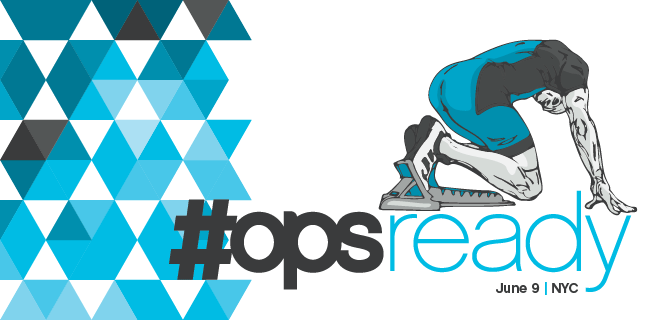
With the Upfronts/NewFronts raging into gear, news is spreading that many brand and agency relationships are on the rocks. Following announcements of media account reviews from L’Oreal, Coca-Cola, Visa and Unilever, P&G mentioned it would be streamlining its agency partners. As this seemed indelibly linked to his OPS keynote – “The Economic Forces Reshaping the Agency Landscape” – I reached out to Rick Webb, cofounder and former COO of groundbreaking digital agency The Barbarian Group, to see if these announcements were signs of turbulent times and great change.
With all these account review notices, are we on the verge of a major agency-land shakeup? Any predictions on what will come out the other end?
First, major disruptions come to advertising every two or three years. We’ve had digital, viral, mobile, social, and programmatic all in the last decade or so. It takes major agencies a while to adopt to these new disruptions. In the meantime, small shops can run away with the work, and use that niche as leverage to grow into the new big guy. In some ways this cycle is as old as the hills, and the big guys and holding companies can just buy the new capabilities as they buy the smaller shops.
But the dynamic is changing as the smaller shops have a second, very rich, client base: tech companies. It’s one thing to sell to Omnicom when your main clients are Coke and Samsung. It’s another when your clients are Apple and Google.
 Next, of course, the media-creative split is causing everyone grief, with social exacerbating it. The separation is at an end – there’s all sorts of evidence that it will eventually die but it’s going to be slooooow. It’ll happen quicker on the web – we’re seeing tons of digital agencies doing planning and buying now, and that trend will continue as it only makes sense given the concept of “earned media.”
Next, of course, the media-creative split is causing everyone grief, with social exacerbating it. The separation is at an end – there’s all sorts of evidence that it will eventually die but it’s going to be slooooow. It’ll happen quicker on the web – we’re seeing tons of digital agencies doing planning and buying now, and that trend will continue as it only makes sense given the concept of “earned media.”
Having a buying/planning capability makes it a more expensive proposition to acquire said agency and it’s specialty talent, so I suspect we’ll see a few more smaller agencies go it alone and stay independent (god bless them).
Finally, the ad industry is prey to all the trends of the rest of American business: freelance nation, outsourcing, the rise of the consultant, focus on core competencies, etc., etc. This, too, reinforces the trend towards smaller agencies.
Any good brand is always looking for the best talent, and they keep finding it at smaller and smaller agencies. Suddenly you’ve got like 200 agencies working for you and managing them is a pain. So you chuck the whole lot, consolidate a few of the best. But as soon as you do, the cycle begins anew.
I experienced this many times at Barbarian Group: “Oh, we just did an agency consolidation, so we can’t bring you on. Wait three months.”
In a similar vein, brands investing in programmatic: fodder for the ad tech trades or real landscape-changing trend?
Sort of both, sort of neither. I mean, if I am buying X number of ads, I’d pay a smidge more to put them in front of people who are most likely to buy my product. If I am selling an ad space, I’d rather sell it to the person who is going to pay the most. Our phones and the big social platforms give us a big new dataset to use in making those buy/sell decisions, and computers make it so we can do it faster, for each individual.
That’s all pretty useful. Will it change everything? No, probably not. But it’s a meaningful increase in efficiency.
It has a limit, though. We’re all bundles of myriad different passions and interests and profiles, and not all of it is quantifiable. In theory, if we had a crack ad team making custom creative for every individual on the planet, tailored to their psyche, and that ad is only shown where they would be, then, great. We’d have achieved something approaching perfection (or at least “the best we can do”).
Production costs make that impossible, and programmatic production is the least effective tactic to fall under the “programmatic” rubric. So we still have to limit ourselves to just a few pieces of creative, broad strokes, broad personae. It’s only moderately effective.
Programmatic is more beneficial to the pubs, of course. They can choose between multiple potential buyers and deliver the one wiling to pay the most for this viewer. Good – a little extra money for pubs. Lord knows they can use it.
As publishers and media companies ramp up their creative efforts (e.g., native, responsive units), do you see this taking a real chunk out of creative agency business?
I think about this a lot, and I can certainly see the logic in theory, but I’m dubious.
On paper it makes sense. Agency thinks of a big campaign idea. It’s tedious as hell to think of “the best possible execution” of that big idea for every native platform. Each native platform has a much better understanding of “the best possible execution” on that platform. To the creative agency becomes a conductor, and each platform makes something awesome for that campaign.
Having seen both sides of the fence, though, I just don’t see it happening. My hunch is the pub creatives will develop one or two cool things a year, and try to sell it to multiple clients over and over, thus diluting the creative bang for the buck.
I also think if there’s one place where an amazing artist wants to work less than an ad agency, it’s a web publication. Journalists find them glamorous, super creative people don’t especially. Pubs also don’t have the know-how for how to keep the best creatives happy and employed. They’re used to journalists who are happy to have jobs at all. (I’m being callous here in simplifying – apologies.)
So, if I’m a lazy CMO, sure, I’ll let Buzzfeed make my creative. Why not, especially if it’s free? But if I’m an obsessive CMO of a leadership brand that’s trying to make it to the top, I’m gonna be willing to spend a couple extra bucks for the best creative.
Of course, this is all being hugely generous to agencies. In my day, there were about three agencies that were any good at this stuff. But it’s getting better now.
The thing that really sways it in my mind in favor of the agencies is display. Love it or hate it, it’s not going away, and a ton of money passes through it. It seems to me pretty messy to have Buzzfeed designing IAB display units that the brand is also using on MSN, Gawker, Pitchfork, etc. I guess they could start little in-house agencies and make this stuff for a profit just like any other agency, but all they’re doing then is changing the ownership game for agencies – like Carrot being acquired by Vice rather than Omnicom. It’s still an agency.
Finally, the nascent endeavors are out there to make native into something that can run on multiple sites. It’s easy to laugh at this because how can native run on a non-native site? Really, they mean “content marketing,” and these companies have been at it for years, but where’s the progress?
Has anyone actually performed a serious study yet on why native “works better”? Is it because it looks like the other content on the site, as Fred Wilson posits, or because the whole exercise forced a brand to actually make something with a point of view that’s kind of interesting. The former can’t really run on multiple sites, but the latter sure can.
In any case, native’s kind of a joke now anyway. There’s a little bit on Tumblr, a little on Instagram, a little on Snapchat, but really native just means content at the moment. The rise of the software suites – a la Percolate and Hootsuite – that allow you to push your content across multiple platforms is changing the concept of native and making it easier to produce for multiple sites, thus tipping the balance back towards agencies for production verses pubs.
You have literally written the book on agencies. What inspired you to write “Agency” (besides cold hard cash) and what do think is the most important takeaway for industry professionals? Can pubs get something out of it too?
Ah yes, the filthy rich lifestyle of the debut author. Screw that poorhouse-life of being an ad exec or a startup exec or a VC – writing, that’s where the real money is!
Seriously, though, I wrote “Agency” for the people I talk to every day – the hundreds of young, hungry, energetic, talented people who are starting creative services firms in the US… They all have a similar set of questions, and it’s not around “doing great work.” They know how to do great work. What they need is a useful, honest guidebook on running their business.
Running a creative services shop is really really hard, and you can only get so rich from it. The latter part is often surprising to people who see “Mad Men” or people in startups and think it means you can quickly make millions. It doesn’t. But the biggest takeaway is probably that having a point of view matters, and having a real vision for your company matters. The sooner you create or find it, the better, because it’s very, very hard to run one of these companies well if it doesn’t stand for something.
There’s lots of useful stuff for publishers as well – some stuff around building products, around the economics of our industry. But it’s probably more useful in an intelligence-gathering manner than hands-on stuff. This is about the business of the craft.
You recently wrote an interesting piece on Medium showing off both your economic and Star Trek acumen. In a post-scarcity economy, is there a role for advertising? What would advertising do or even look like?
Ah, you’re catching onto the topics of my next book. Basically, if you asked 10 economists if advertising worked, you’d get a bunch of different answers. There are lots of theories of advertising and economic: spreading information; signaling quality; activating emotions; declaring provenance.
Logically, the lack of scarcity means a surplus of goods, which would mean a harder time choosing between multiple products. An overabundance of options. People like help making choices.
Putting on my Star Trek hat, earned media obviously exists. They love Romulan Ale over other ales. Antarean Brandy over other brandies. Risa is known as the best holiday planet, etc. Word of mouth has done this, and word of mouth can be manipulated.